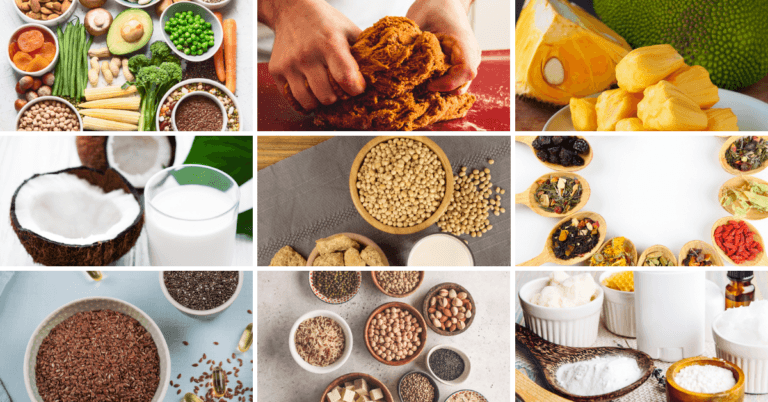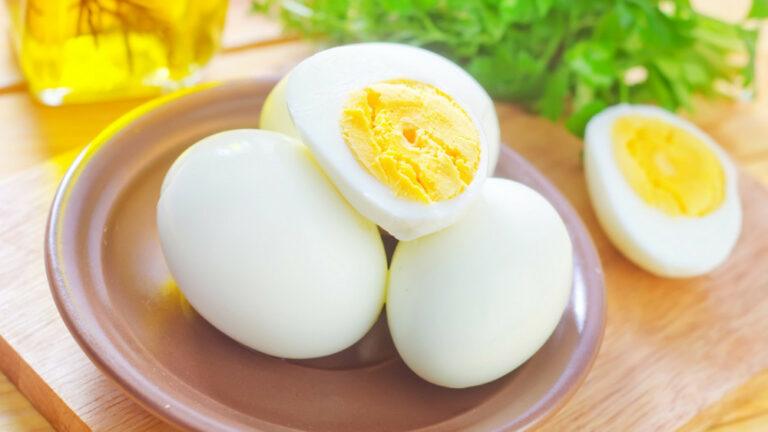Can Vegans Eat Chocolate
Indulging in the pleasure of chocolate is a delight shared by many, but for vegans, navigating the world of chocolate can be a bit more complex.
Veganism is a lifestyle that abstains from consuming animal-derived products, including dairy and other animal ingredients.
Therefore, traditional chocolate products, which often contain milk and other non-vegan additives, are unsuitable for a vegan diet.
However, this doesn't mean vegans must give up on chocolate altogether. Plenty of delicious and ethically-made vegan chocolate options are available that cater to their dietary preferences while satisfying their sweet cravings.
From dark chocolate to inventive plant-based creations, the world of vegan chocolate offers a delectable array of treats that allow vegans to indulge guilt-free.
In this article, we'll explore the delightful world of vegan chocolate, highlighting various brands, types, and creative recipes that cater to this compassionate and cruelty-free lifestyle.
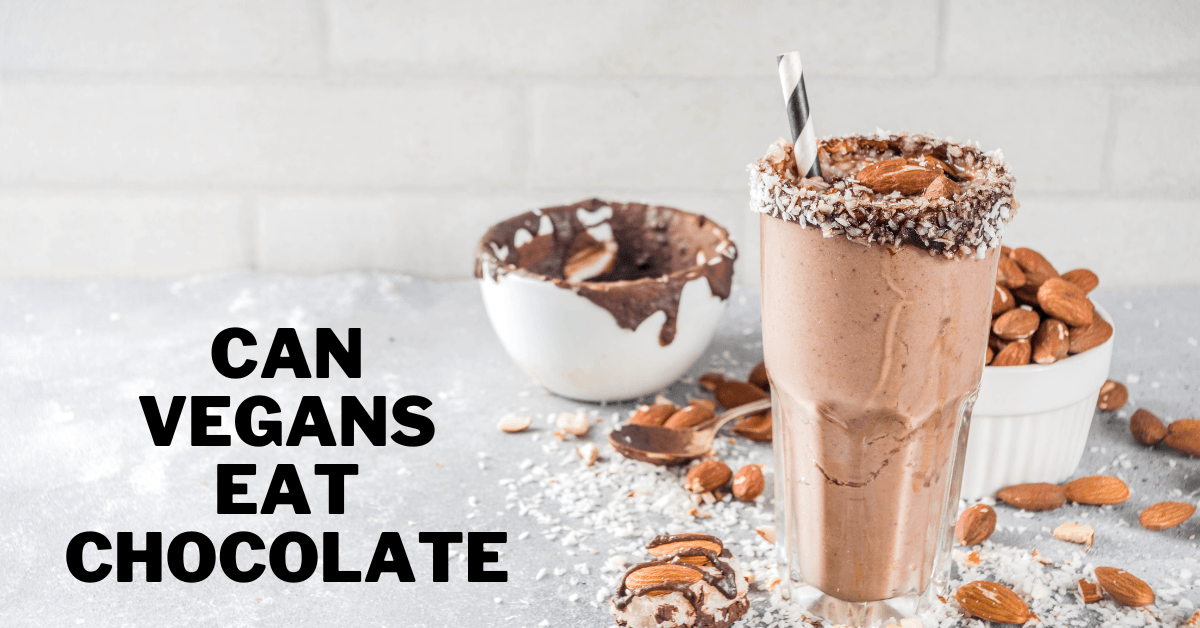
Can Vegans Eat Chocolate?
Yes, vegans can enjoy chocolate! However, traditional chocolate products containing milk, butter, or other animal-derived ingredients are unsuitable for a vegan diet.
For ethical reasons, vegans abstain from animal products, including dairy, eggs, and honey. Thankfully, numerous vegan-friendly chocolate options cater to their dietary preferences.
Dark chocolate is a popular choice for vegans, as it typically contains a higher percentage of cocoa solids and little to no milk solids.
Many dark chocolate bars are entirely plant-based and free from animal ingredients, making them a safe and delicious option for vegans.
Some dark chocolate varieties boast impressive cacao percentages, offering intense and rich flavours.
In recent years, the market for vegan chocolate has expanded, with many brands offering explicitly labelled vegan chocolate bars, truffles, and other treats.
These vegan chocolates often use plant-based alternatives, such as almond, coconut, or oat milk, to achieve creamy textures without using dairy.
Additionally, vegan chocolate may incorporate creative ingredients like nuts, fruits, or superfoods, providing unique and exciting flavour combinations.
Vegans can also experiment with making their vegan chocolate treats at home. Various recipes for homemade vegan chocolate chip cookies, chocolate almond desserts, brownies, fudge, and more are available.
By using dairy-free chocolate chips or cocoa powder and plant-based milk and sweeteners, vegans can whip up their personalized chocolate creations to suit their taste preferences.
In conclusion, while traditional chocolate products may not be suitable for vegans, there is a vast and delightful world of vegan chocolate options.
Whether store-bought or homemade, vegans can indulge in chocolatey goodness while adhering to their compassionate and cruelty-free lifestyle.
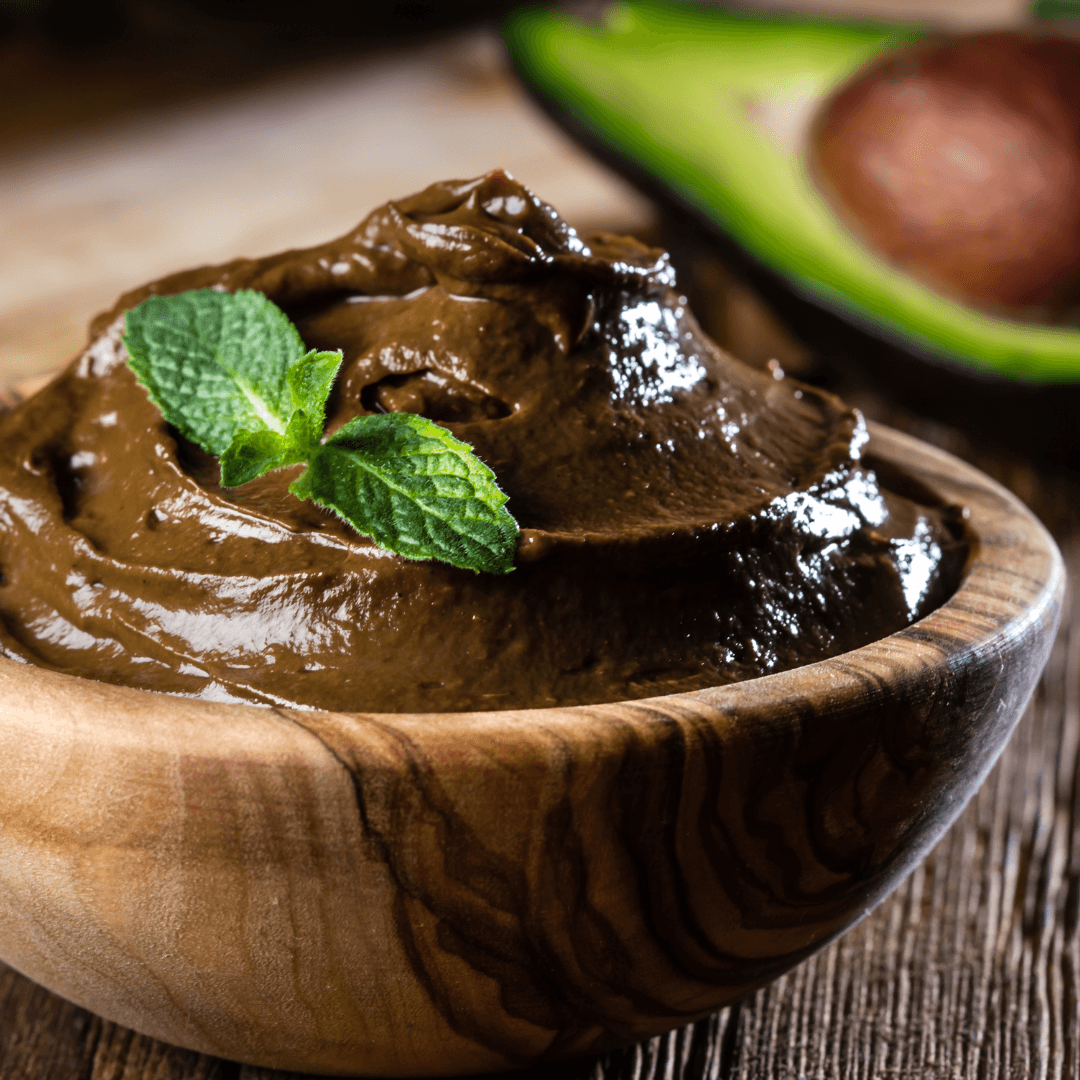
What Is Vegan Chocolate?
Vegan chocolate is a type of chocolate that is specifically made without the use of any animal-derived ingredients.
Traditional chocolate typically contains milk solids, butterfat, or other dairy products, making it unsuitable for vegans.
However, vegan chocolate replaces these animal ingredients with plant-based alternatives to create a cruelty-free and ethical treat.
Vegan chocolate uses cocoa powder and cocoa butter, which form the base of chocolate. Smoothness and creaminess are provided by cocoa butter.
Vegan chocolate uses plant-based alternatives to replace dairy milk in conventional chocolate bars.
Almond, coconut, rice, oats, and soy milk are common options for a creamy texture and flavour in vegan chocolate.
These milk alternatives complement the cocoa flavours and provide a rich and satisfying taste.
In addition to cocoa powder, cocoa butter, and plant-based milk, vegan chocolate also includes sweeteners and flavourings.
Sugar is commonly used to add sweetness, while natural sweeteners like agave or maple syrup are sometimes used as a healthier option. Vanilla extract or other natural flavourings may be added to enhance the taste.
Vegans can enjoy various vegan chocolate products, including chocolate bars, truffles, chocolate chips, hot cocoa mixes, and chocolate spreads.
As the demand for vegan options increases, more and more brands are offering vegan-friendly chocolate products, making it easier than ever for vegans to satisfy their chocolate cravings while adhering to their compassionate lifestyle.
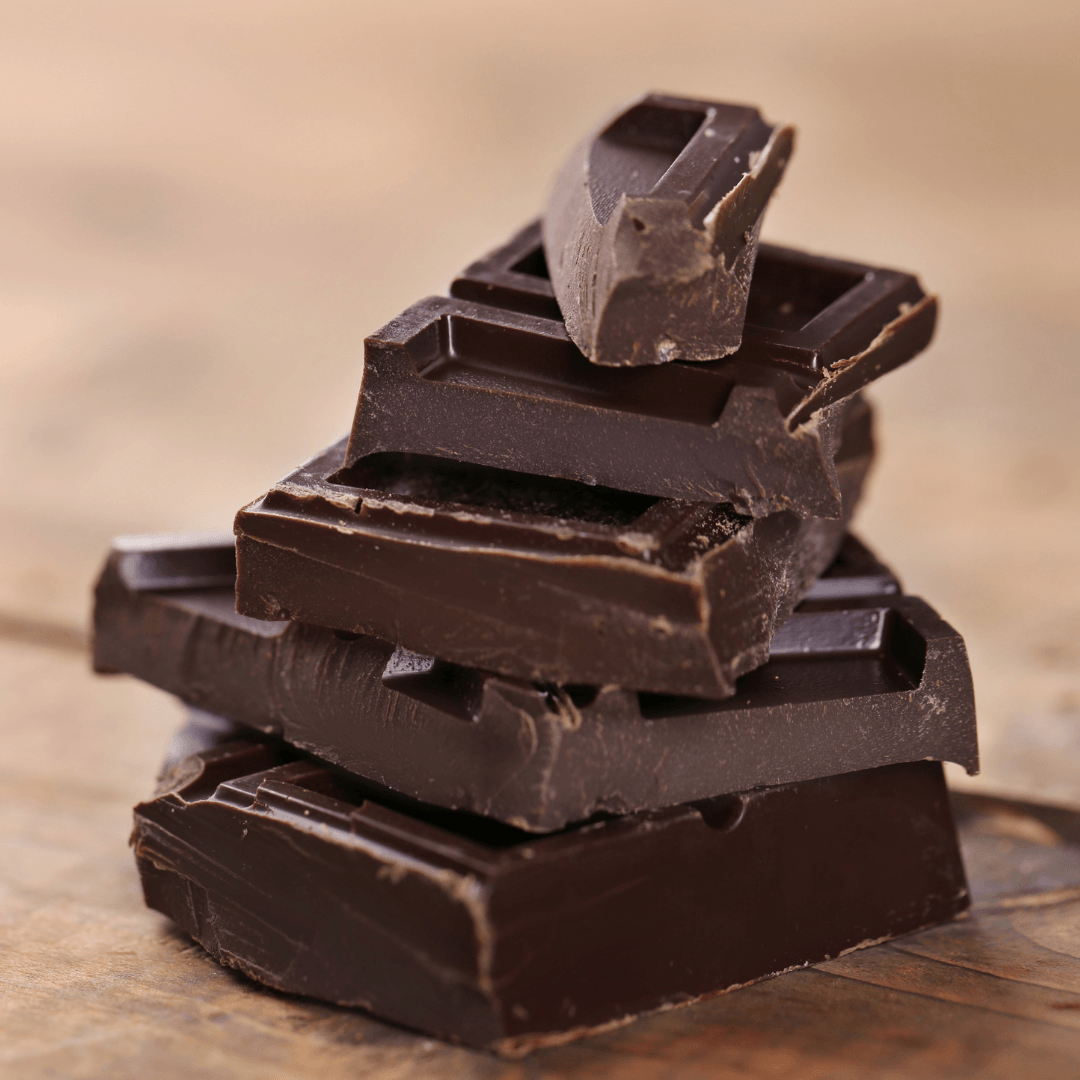
Health Benefits Of Eating Vegan Chocolate
Eating vegan chocolate can offer various health benefits, especially when consumed in moderation as part of a balanced diet.
Here are some of the potential health advantages of including vegan chocolate in your diet:
1. Vegan Chocolate Is Rich in Antioxidants
Chocolate, particularly dark chocolate with higher cocoa content, is rich in flavonoids. Flavonoids are a group of polyphenolic compounds that have been studied for their potential health benefits.
These antioxidants play a crucial role in neutralizing free radicals and unstable molecules that can cause damage to cells and DNA.
By neutralizing free radicals, flavonoids help reduce oxidative stress and inflammation in the body.
This, in turn, may contribute to various health benefits, such as improved cardiovascular health, enhanced cognitive function, and a reduced risk of chronic diseases.
Some studies suggest that cocoa flavonoids may positively impact blood pressure and cholesterol levels.
However, it is essential to remember that chocolate's overall health benefits can vary based on factors such as the cocoa content and the presence of other ingredients like sugar and fat.
Choosing high-quality dark chocolate with minimal additives and consuming it in moderation can be a delicious way to enjoy the potential health benefits of these antioxidants.

2. Cardiovascular Support
The flavonoids present in cocoa have been associated with several cardiovascular benefits.
Firstly, these compounds have been found to improve blood flow by enhancing the function of blood vessels and promoting vasodilation, which helps relax and widen the blood vessels, leading to improved circulation.
Secondly, cocoa flavonoids have been linked to reducing blood pressure, as they can help relax the smooth muscles in the blood vessel walls, leading to lower resistance against blood flow.
This effect, in turn, can contribute to a decrease in hypertension and a reduced risk of cardiovascular diseases.
Additionally, flavonoids have anti-inflammatory properties, which can help reduce inflammation in the arteries and prevent the development of atherosclerosis.
In this condition, plaque builds up in the arterial walls, narrowing the blood vessels. Overall, consuming cocoa-rich products, such as dark chocolate with high cocoa content, in moderation and as part of a balanced diet may support cardiovascular health and contribute to a healthier heart.
However, it is essential to remember that while cocoa flavonoids offer potential benefits, it is necessary to maintain a healthy lifestyle that includes regular exercise and a well-balanced diet for optimal heart health.
3. Mood Enhancer
Chocolate has earned its reputation as a mood enhancer because it stimulates the brain's release of “feel-good” neurotransmitters.
Serotonin, often referred to as the “happiness hormone,” regulates mood and promotes feelings of well-being.
The consumption of chocolate triggers an increase in serotonin levels, contributing to a sense of relaxation and contentment.
Additionally, chocolate can release endorphins, which act as natural painkillers and induce euphoria and pleasure. These neurological effects can temporarily boost mood and alleviate stress or anxiety.
However, it's essential to remember that while chocolate can provide a brief mood uplift, its effects are relatively short-lived.
Consuming large quantities may lead to unwanted side effects due to its sugar and calorie content.
Therefore, moderation is key to enjoying the potential mood-enhancing benefits of chocolate while maintaining a balanced and healthy diet.

4. Cognitive Benefits
Emerging research indicates that cocoa flavonoids in vegan chocolate could offer cognitive benefits.
These compounds have been linked to improved blood flow to the brain, which may enhance cognitive function and memory.
Flavonoids are believed to have neuroprotective properties, helping to shield brain cells from oxidative stress and inflammation, two factors associated with age-related cognitive decline.
Additionally, caffeine and theobromine in chocolate may contribute to increased alertness and mental focus.
While these findings are promising, it's important to note that more research is needed to understand the extent of chocolate's cognitive benefits fully.
Moreover, not all chocolate products are created equal, and those with higher cocoa content and fewer added sugars are likely to have more significant potential cognitive advantages.
As with any dietary choice, moderation is crucial, as excessive chocolate consumption may lead to negative health effects and counteract the potential benefits.
5. Source Of Essential Minerals
Vegan chocolate made from cocoa is a source of essential minerals that contribute to overall health.
Magnesium, found in cocoa, plays a vital role in muscle function, nerve transmission, and maintaining a healthy heartbeat. It also supports bone health and helps regulate blood pressure.
Iron is another crucial mineral in cocoa, essential for producing red blood cells and oxygen transport throughout the body.
Adequate iron intake is vital to prevent anemia and maintain energy levels. Additionally, copper, also found in cocoa, is involved in energy metabolism, connective tissue formation, and iron absorption.
Including vegan chocolate in the diet can be a delicious way to obtain these essential minerals.
However, it's important to be mindful of portion sizes and choose dark chocolate with higher cocoa content, as some commercial chocolate products may contain added sugars and fats that can diminish the health benefits.
As with any treat, moderation is key to enjoying the positive effects of vegan chocolate's mineral content.

6. Energy Boost
Vegan chocolate can be a quick energy source due to its natural sugars and carbohydrates.
The sugars, mainly sucrose, provide a rapid energy boost, making chocolate an appealing option for athletes and individuals engaged in physical activities.
The carbohydrates in chocolate are easily digestible and can give an immediate fuel source to support endurance and performance during workouts or strenuous exercises.
However, it's essential to remember that while chocolate can offer a quick energy boost, it should be consumed in moderation to avoid excessive calorie intake and potential negative effects on health.
Combining vegan chocolate with other nutrient-dense foods can create a balanced snack that provides quick energy and offers additional nutrients for sustained performance and overall well-being.
As with any food, incorporating vegan chocolate into a balanced diet and an active lifestyle is key to reaping its energy-boosting benefits effectively.
7. Skin Health
The antioxidants in cocoa, such as flavonoids, polyphenols, and catechins, are crucial in promoting skin health.
These compounds have been shown to protect the skin from harmful UV rays, reducing the risk of sunburn and premature aging caused by free radicals.
The antioxidants in vegan chocolate can also help improve skin elasticity and hydration by supporting collagen production, which is essential for maintaining youthful and supple skin.
Additionally, cocoa contains minerals like magnesium, copper, and zinc, aiding skin repair and renewal.
Including vegan chocolate and a balanced intake of other antioxidant-rich foods like fruits and vegetables can contribute to healthier and more radiant skin.
However, it's important to note that while cocoa can offer some skin benefits, excessive consumption of chocolate and other sugary treats may adversely affect skin health.
Hence, moderation is key for reaping the skin-enhancing benefits of vegan chocolate.

8. Improved Stress Response
Vegan chocolate contains compounds that can positively influence stress and mood.
One such compound is tryptophan, an amino acid that contributes to the production of serotonin, a neurotransmitter associated with feelings of relaxation and well-being.
Additionally, chocolate contains phenylethylamine, a compound that can stimulate the release of endorphins, known as “feel-good” chemicals.
Together, these compounds can contribute to a mild but noticeable calming effect when consuming vegan chocolate in moderation.
It's important to note that the stress-reducing benefits of chocolate are most effective when enjoyed as part of a balanced and healthy lifestyle.
While indulging in a small amount of vegan chocolate can be a delightful way to unwind and alleviate stress.
Relying solely on chocolate for stress relief may not be the most effective or sustainable approach.
Incorporating other stress-reducing practices, such as exercise, meditation, adequate rest, and a varied and nutrient-rich diet, can have a more profound and lasting impact on overall stress management and well-being.
9. Blood Sugar Regulation
Vegan chocolate with a high cocoa content can be a beneficial option for individuals concerned about blood sugar regulation.
The lower glycemic index of dark chocolate means that it causes a slower and more gradual increase in blood sugar levels compared to chocolates with added sugars or higher milk content.
This can be particularly advantageous for individuals with diabetes or those striving to manage their blood sugar levels.
The slower increase in blood sugar can help prevent rapid spikes and crashes, leading to more stable energy levels and better overall blood sugar control. However, enjoying dark chocolate in moderation and as part of a balanced diet is essential.
While it may benefit blood sugar regulation, it still contains calories and fat that can contribute to weight gain if consumed excessively.
Additionally, individuals with diabetes or specific health conditions should consult their healthcare providers before incorporating dark chocolate into their diet to ensure it aligns with their health needs and goals.
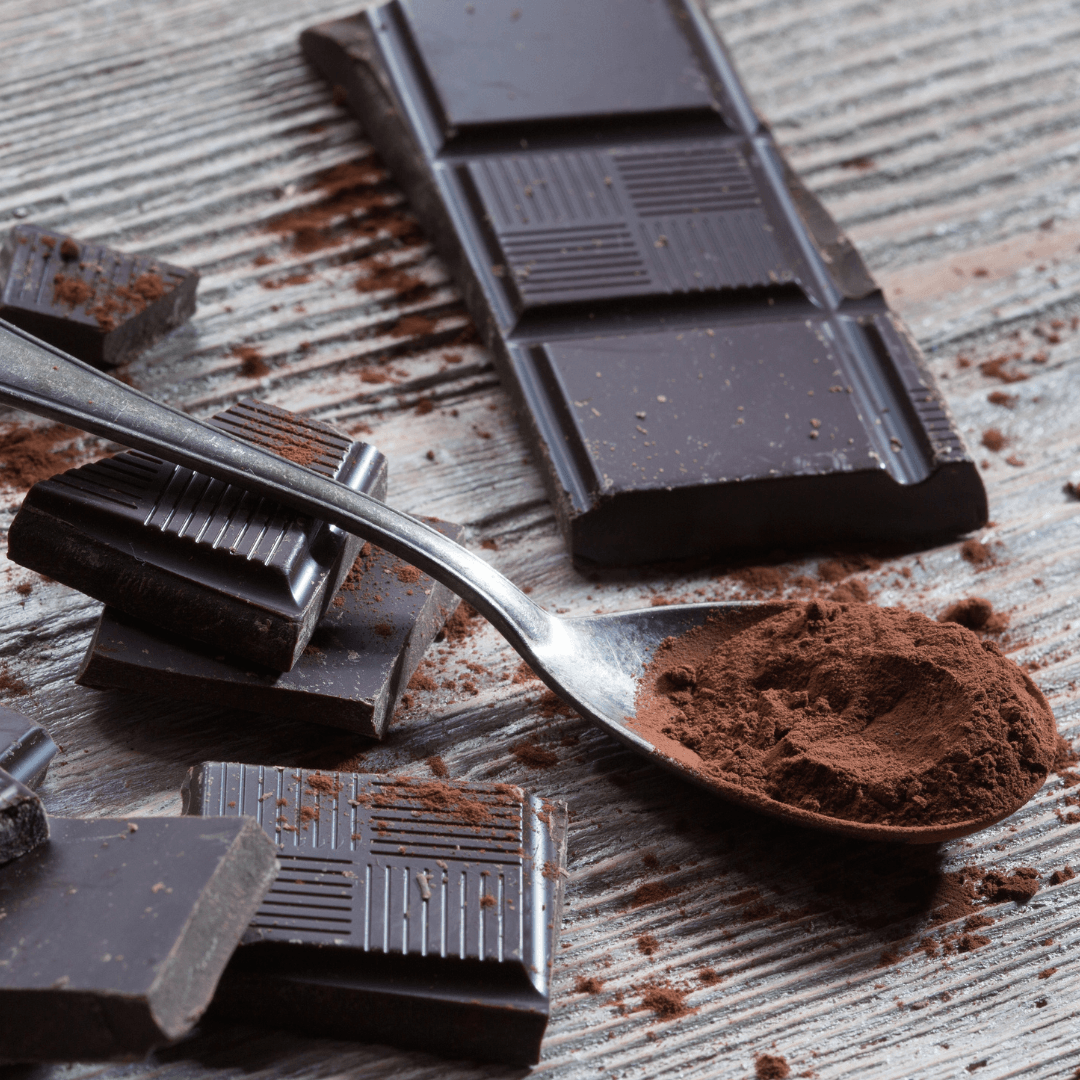
10. Appetite Suppression
Research indicates that dark chocolate consumption may suppress appetite, benefiting individuals who manage their weight.
The compounds found in dark chocolate, such as stearic acid and oleic acid, have been shown to influence hormones related to hunger and satiety.
Specifically, dark chocolate may increase the levels of hormones that promote feelings of fullness while decreasing those associated with hunger and appetite stimulation.
Additionally, dark chocolate's rich and intense flavour can satisfy cravings for sweet, salty, and fatty foods, potentially reducing the desire to indulge in less healthy snacks.
However, it's essential to be mindful of portion sizes and choose high-quality dark chocolate with a higher cocoa and lower sugar content to maximize these potential benefits.
As with any food, moderation is key, and incorporating dark chocolate into a well-balanced diet and healthy lifestyle is the most effective approach to weight management.
11. Bone Health
Vegan chocolate made with cocoa can contribute to bone health as it contains essential minerals like calcium and phosphorus.
Calcium is a crucial mineral for maintaining strong bones and teeth, and it plays a vital role in various physiological processes, including muscle function and nerve transmission.
Phosphorus, on the other hand, is a key component of bone mineralization and helps form and repair bones.
Including vegan chocolate as part of a balanced diet can provide a small but valuable amount of these minerals to support overall bone health.
However, it's important to note that chocolate can be a source of these minerals but should not be relied upon as the sole or primary source.
For optimal bone health, a well-rounded diet that includes a variety of calcium and phosphorus-rich foods such as leafy greens, fortified plant-based milk, nuts, and seeds is recommended.
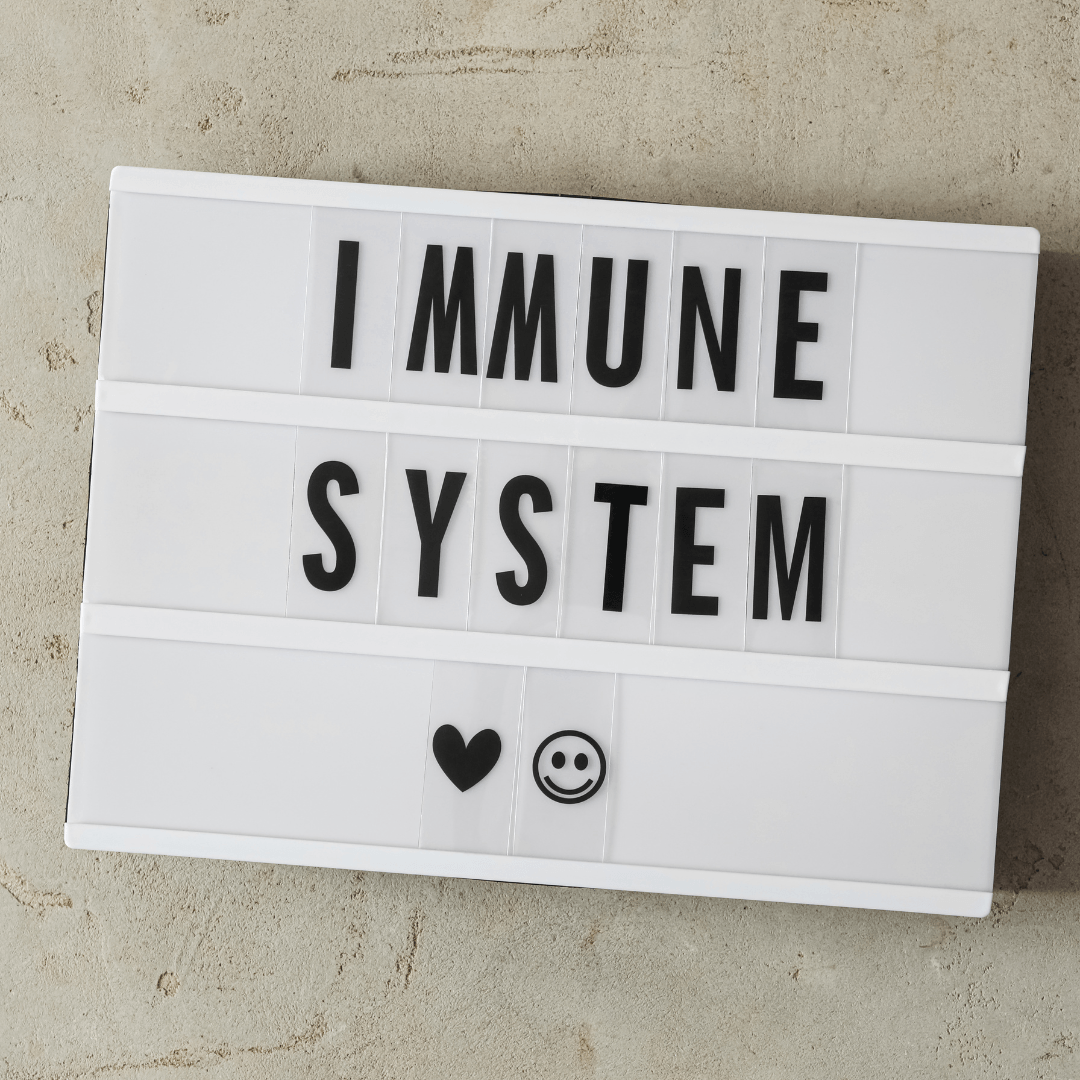
12. Immune System Support
The antioxidants found in vegan chocolate can support the immune system by neutralizing free radicals and reducing oxidative stress in the body.
Free radicals can cause cellular damage and weaken the immune system, making the body more susceptible to infections and illnesses.
Individuals can introduce a source of powerful antioxidants into their diet by consuming vegan chocolate with high cocoa content.
These antioxidants, such as flavonoids, help protect immune cells from damage and enhance the body's natural defence mechanisms.
While chocolate should be enjoyed in moderation as part of a balanced diet, incorporating dark chocolate with high cocoa content can be a delicious way to boost immune health and promote overall well-being.
Choosing quality vegan chocolate products with natural and minimally processed ingredients is essential.
Due to its higher concentration of antioxidants and lower sugar level, dark chocolate with a cocoa content of 70% or above is usually the healthiest choice.
While vegan chocolate can offer some health benefits, it is still a treat and should be consumed in moderation.
If you have particular dietary concerns or health conditions, speaking with a healthcare provider or trained dietitian is always recommended before making any major adjustments.
Eating vegan chocolate as part of a balanced and varied diet is an enjoyable and guilt-free approach to indulging in sweet pleasure.
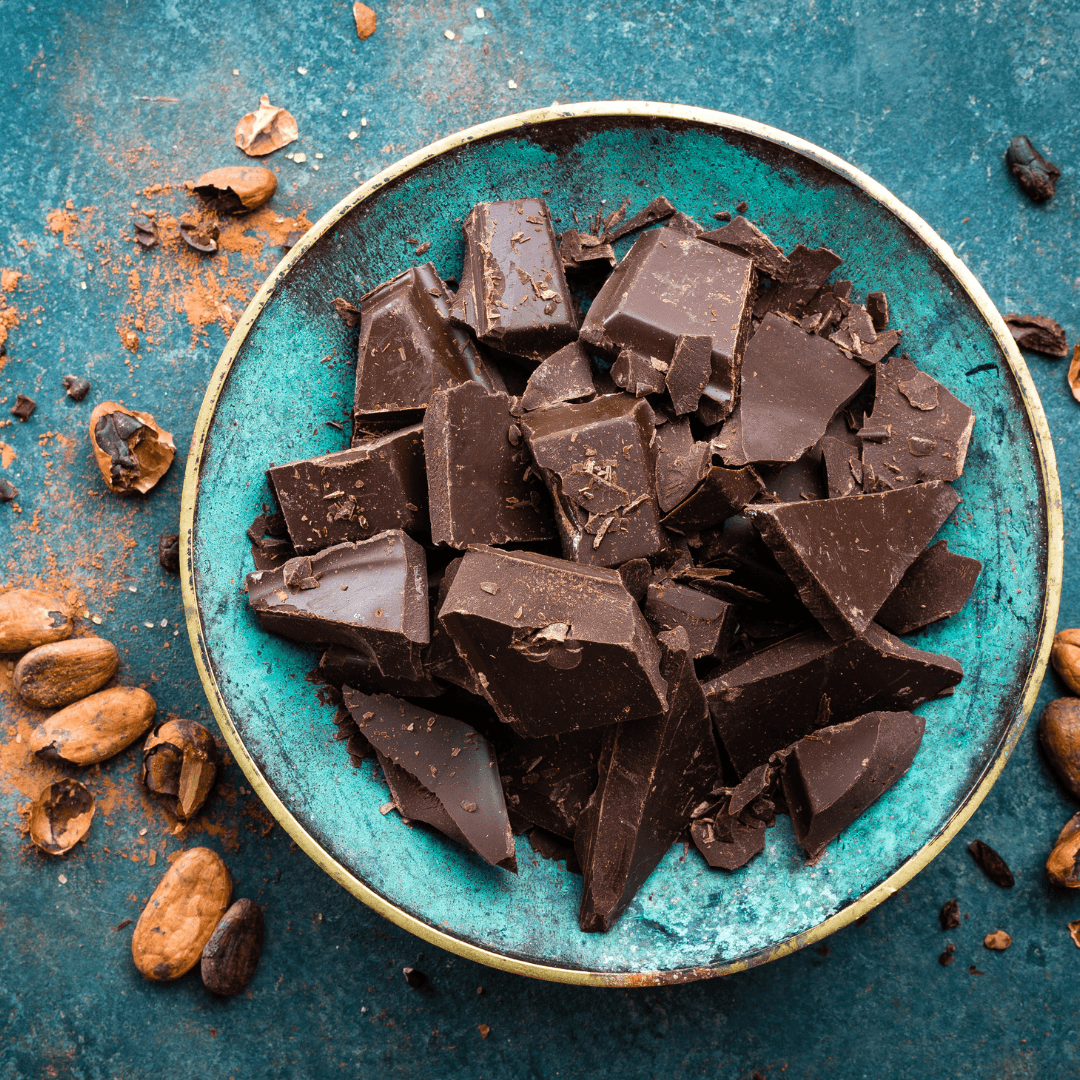
Conclusion
In conclusion, vegans can eat chocolate! With a wide range of vegan chocolate brands and options, vegans can enjoy many delicious and ethical choices.
Vegans can indulge in sweet treats from dark chocolate to milk chocolate alternatives made with plant-based ingredients while upholding their commitment to an animal-free lifestyle.
Whether it's a rich and decadent chocolate bar or dairy-free chocolate chips for baking, vegans can savour the taste of chocolate guilt-free.
So, if you're a chocolate lover following a vegan diet, rest assured that you have numerous mouthwatering and compassionate options to delight in. Happy chocolate indulging!
I trust you enjoyed reading the article Can Vegans Eat Chocolate? Please stay tuned. More blog posts will be posted very shortly.
JeannetteZ
>>>Do You Want To Surprise Your Family And Guests With Delicious Vegan Lunches And Dinners Regularly? Become A Member At Veecoco – My #1 Recommendation – And Have Access To Over 700 Delicious, Healthy AND 100% Vegan Recipes<<<
Your Opinion Is Important To Me
Do you have thoughts, ideas, or questions? I would love to hear from you. Would you please leave me your questions, experiences, and remarks about Can Vegans Eat Chocolate in the comments section below? You can also email me at Jeannette@LivingTheVeganLifestyle.org.
>>>Please click here to learn how to make vegan chocolate<<<
Disclosure
This post may contain affiliate links. I earn from qualifying purchases as an Amazon Associate and other affiliate programs. Please read my full disclosure.
Here are some links to some of my favourite articles:
How To Choose The Best Vegan Milk





